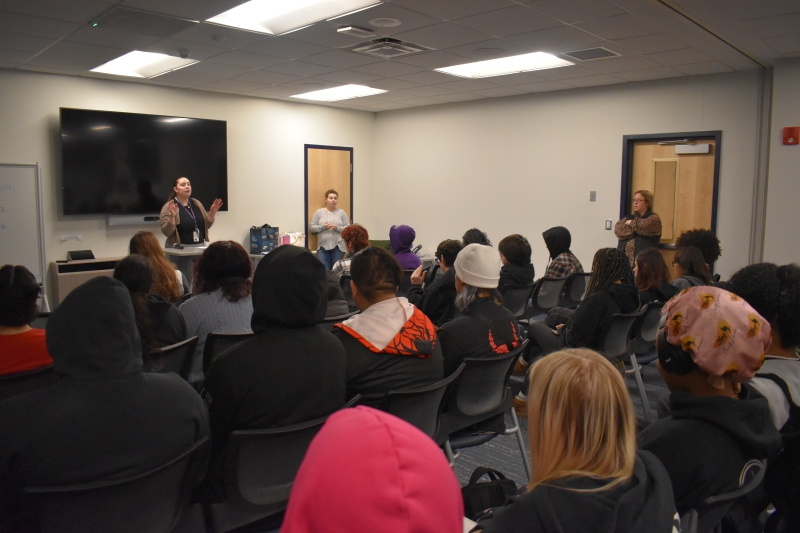
One in three teenagers will be affected by dating violence and when Grace Smith House community development associate Nikki V. asked students to name signs of an abusive relationship, they noted physical violence, but also mental and verbal abuse too. “Relationships can be abusive even if there never is any physical violence present,” Nikki said. “Our definition of teen dating violence is one person hurting their dating partner through power and control.”
Grace Smith House is a private nonprofit that provides services to victims of domestic violence. Staff use only first names and last initials for safety purposes.
Characteristics that determine whether a relationship is unhealthy or abusive include one partner being intentionally and repeatedly abusive, as well as there being a power imbalance.
“Power can really be anything that one person has that another person either doesn’t have or has less of,” Nikki explained. “It can be things like money, physical strength, social status, or perceived status, it could even be age.”
However, some relationships, such as one between a teacher and a student, that have a power imbalance are not inherently unhealthy.
Abuse in a relationship is often not seen immediately, especially when it is very loving to start. Nikki noted that the relationship changes slowly from one partner feeling as if they are walking on eggshells around their partner to the fear stage where physical and verbal abuse is experienced.
“If you go on a first date and somebody shouts at you, you’re probably not going to go on a second date,” Nikki said. “If your partner of one year, two years, shouts at you it’s going to be a lot more difficult to leave that person and break up with them.”
The third stage of abuse involves the abusive partner apologizing for their actions and making the abused partner feel guilty, but hopeful that things will go back to how they were.
“Over time, these apologies can turn into blaming,” Nikki said. “It’s very manipulative.”
Manipulation is also a frequent tactic in an abusive relationship and involves gaslighting the abused partner slowly over time, stalking and guilt-tripping them.
“The abuser will change the perception of the victim’s reality and it happens subtly and slowly,” Grace Smith House outreach advocate Shannon M. said. “There’s the guilt-tripping, the blaming, putting you down, calling you names.”
The Students Against Destructive Decisions (SADD) club discussed topics surrounding relationships, boundaries and coping skills and decided to have Grace Smith visit in recognition of February being National Teen Dating Awareness Month, but the talk had to be postponed because of weather. Teaching assistant and SADD adviser Christina Olson noted that the workshop was essential in talking about these hard, but important topics.
“They ended the assembly with the importance of knowing that you are not alone and there are people out there to help,” Olson said of the students. “If you know someone in a situation, it's important to listen, accept and offer help.”
If you or someone you know is in need of help, call the Grace Smith House hotline at 845-471-3033.
